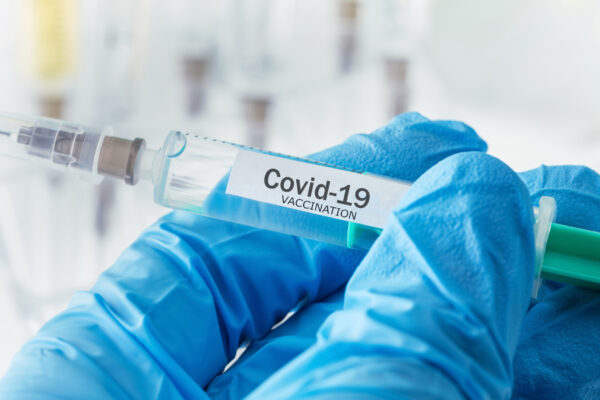
Moderna’s senior leadership team, including CEO Stephane Bancel wasted no time in charting the company’s rapid and unexpected rise as a startup without a single product on the market to being only the second company to have a EUA from the FDA to market its Covid-19 vaccine.
But when it came to assessing the early slow and faulty rollout of the two vaccines – Moderna’s and BioNTech/Pfizer’s – by the federal and state governments, Bancel demurred, lobbing the question from J.P.Morgan analyst Cory Kazimov over to Tal Zaks, the Massachusetts company’s chief medical officer.

The Funding Model for Cancer Innovation is Broken — We Can Fix It
Closing cancer health equity gaps require medical breakthroughs made possible by new funding approaches.
So, uh I think what we are seeing is the gradual deployment and the interface between the federal government and the states. Frankly, our job is complete when we deliver our vaccine to OWS (Operation Warp Speed). I think beyond that really it is up to the logistical challenges between the federal and state levels. I do think our vaccine offers the states more flexibility in terms of how they deploy with the cold chain requirements. We use existing infrastructure and so we are seeing more and more uptake but of course I am going to defer to OWS for the logistics of it.
The lack of criticism is not unexpected given how sensitive the issue of vaccine rollout has become since the country has falled far short of the declaration of the Trump administration that 20 million people would be vaccinated by the end of December.
What Bancel was more comfortable addressing is projections about how many doses of the company’s Covid-19 vaccine the 1,300- strong company can deliver in the next 12 months.
That’s at least 600 million doses with a chance of hitting 1 billion doses in 2021 as the company ramps up manufacturing, but Bancel said as the year progresses, he would be able to provide a more accurate picture. That compares with 2 billion doses that BioNTech CEO Ugur Sahin said Pfizer and BioNTech aims to deliver in 2021. So between the two currently approved vaccines, the world will have somewhere between 2.6 billion to 3 billion vaccines.

Heard at HLTH 2024: Insights from Innovative Healthcare Executives
Executives from Imagine360, Verily, BrightInsight, Lantern, and Rhapsody shared their approaches to reducing healthcare costs and facilitating digital transformation.
Like Sahin, Bancel extolled the endless possibilities of the messenger RNA platform, the technology that both these companies leveraged to create an effective vaccine in record time – 11 months for Moderna and 10 months for BioNtech.
“mRNA is now a new class of medicines” Bancel said before expressing his excitement over a future where mRNA technology can not only create safe and effective vaccines but also have a significant impact in delivering therapies.
In Moderna, the company is focusing closely on infectious diseases and cancer vaccines, with five programs targeting the latter. He also shared a slide showing the clear unmet need in vaccine development. [Click image to enlarge.]
Bancel closed by calling 2021 a point of inflection for the decade-old company following a year of remarkable growth, name recognition and advance purchase deals worth $11 billion signed to deliver vaccines worldwide. But looking at 2020 shows that the company capped off a pretty remarkable, trailblazing year as well. The company’s stock closed at $117.26 dollars on Monday, up from a mere $18.89 on Jan 3, 2020, a whopping 520 percent increase.
If it can deliver the vaccine doses, and prove the mettle of mRNA in other vaccines and therapies, then the sky is the limit.
Credit: Teka77, Getty Images









